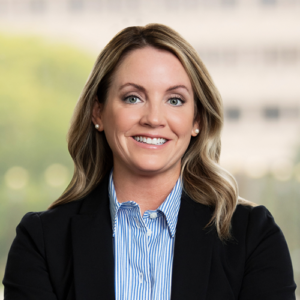Summary
On November 30, 2011, the Centers for Medicare and Medicaid Services (“CMS”) published the CY 2012 OPPS/ASC Final Rule with comment period (“Final Rule”). In the Final Rule, CMS revised provider agreement regulations addressing hospital and critical access hospital (“CAH”) patient notification requirements for situations where a physician is not present in the hospital 24 hours per day, 7 days per week (“24/7”). The Final Rule is effective on January 1, 2012. To be considered, comments must be received no later than 5 p.m. EST on January 3, 2012 per instructions in the Federal Register. The Final Rule can be found at: http://www.gpo.gov/fdsys/pkg/FR-2011-11-30/pdf/2011-28612.pdf.
Regulatory Changes Affecting Patient Notification Requirements
Background. The current provider agreement regulations at 42 CFR 489.20(w) require all hospitals and CAHs, including physician-owned hospitals, to provide written notification to all inpatients and outpatients at the beginning of a hospital stay or outpatient visit if a physician is not present in the hospital 24/7. The notice also must describe how a medical emergency would be handled in the absence of a physician. Hospitals have commented on the burdensome nature of these requirements, particularly with respect to the emergency room setting where providing a written notice makes registration “more cumbersome and time-consuming.” In response to these comments and after full consideration of the patient safety issues, CMS proposed certain changes to 42 CFR 489.20(w) in the CY 2012 OPPS/ASC proposed rule. These changes were finalized in the Final Rule.
Final Rule. Under the finalized regulations at 42 CFR 489.20(w), hospitals and CAHs need only make the patient disclosure described above to those outpatients receiving observation services, surgery or any other procedure requiring anesthesia. Other outpatient encounters are considered short and often are scheduled in advance, so CMS views the risk of an emergency warranting the notification as being relatively low. Under the Final Rule, all inpatients must receive the notice as is currently required. With respect to unplanned hospital stays or visits, new language has been added stating an unplanned stay or visit begins “at the earliest point at which the patient presents to the hospital.” This triggers the requirements of giving notification regarding physician presence and the procedure for managing medical emergencies in the absence of a physician. Those hospitals with dedicated emergency departments in which a physician is not present 24/7 must post conspicuously located signage advising patients of this fact. A hospital or CAH that is the main provider but has remote locations or satellites would need to decide whether notice is required separately at each location providing patient services. Finally, the hospital or CAH, before providing services to an outpatient for whom a notice is required, must receive a signed acknowledgement of receipt of the notice.
Conclusion
The revised patient notification regulations reduce the burden for hospitals and CAHs providing outpatient services that do not involve observation, surgery or anesthesia. Of note, while the revised requirements under 42 CFR 489.20(w) apply to physician-owned hospitals, there is a separate similar regulation at 42 CFR 411.362(b)(5)(ii), applicable only to physician-owned hospitals, which requires physician-owned hospitals to provide notice to all inpatients and all outpatients if there is not a physician on site during all hours in which the hospital is providing services to the patient. No similar revisions to 411.362(b) were proposed, presumably because this regulation was required to implement the Affordable Care Act. Therefore, physician-owned hospitals must continue to provide notice to all inpatients and outpatients in accordance with 411.362(b) if a physician is not on the premises 24/7.
If you have any questions, would like additional information about this topic or need help preparing and submitting comments, please contact Adele Merenstein at (317) 752-4427 or amerenst@wp.hallrender.com, Erin Drummy at(317) 977-1470
or edrummy@wp.hallrender.com or your regular Hall Render attorney.

